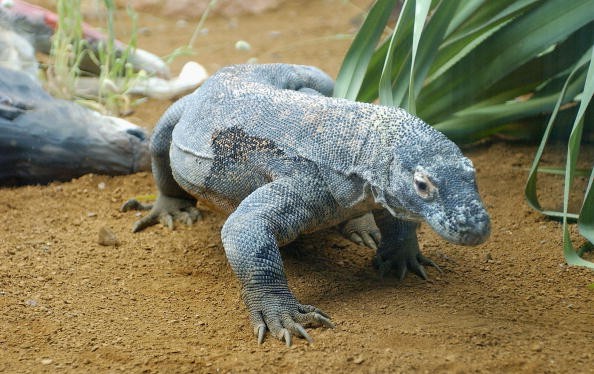
Komodo dragon, the largest and deadliest lizard in the world could save lives with its blood. Latest research suggests that the Komodo dragon blood contains substances that can be used to treat diseases that are resistant to antibiotics.
The result of the research from the Komodo dragon blood was published in the NPJ Biofilms and Microbiomes journal. The School of Systems Biology at George Mason University in Manassas, VA conducted the study along with co-author Monique van Hoek and her team.
Based on the statistics gathered by the Centers for Disease Control and Prevention (CDC), there are roughly 2 million individuals in the US contract bacteria that are resistant to antibiotics. No more than 23.000 deaths have been recorded to take place as an immediate reaction. As one of the biggest dangers in health, the bacterium Clostridium difficile is accountable for almost 250,000 infections that cause 14,000 mortalities every year, Medical News Today reported.
Unfortunate to say that for the past 30 years, no new antibiotics have been developed. This gives the microbes the chance to evolve and become immune to the same old antidote and to longer respond to the effects. Van Hoek and her team's findings pivoted to Komodo dragon blood to shed some light on the looming shadows of antibiotic-resistant bacteria.
Researchers suggested that the Komodo dragon blood contains a peptide called VK25. The blood sample was taken from a Komodo dragon that lives in the St. Augustine Alligator Farm Zoological Park in Florida. After a careful study of the Komodo dragon blood, it was found out that the peptide contains mild anti-microbial substances. It was also discovered that it has the capability of preventing biofilm - a microorganism that attaches to each other for survival and protection, generally found in wounds.
The two amino acids contained in VK25 from the peptide of the Komodo dragon blood were then remodeled to make it more potent. The process gave birth to the peptide's new synthetic version that was later on called DRGN-1.
"Synthetic germ-fighter peptides are a new approach to potentially defeat bacteria that have grown resistant to conventional antibiotics. The antimicrobial peptides we're tapping into represent millions of years of evolution in protecting immune systems from dangerous infections," van Hoek said.
According to BBC, scientists are confident that this development will open a new era to discovering a new strain of antibiotics from the Komodo dragon blood to combat pathogens that resist the effects of old antibiotics. The study suggests that DRGN-1 would help in the faster healing of wounds as proven in mice.
Komodo dragon is the largest species of lizards which can grow up to 10 feet long. Its saliva contains a lot of different bacteria which deadly to other animals or even humans but not to it. Komodo dragon blood possesses a major substance that scientists could provide a new phase in treating wounds.



